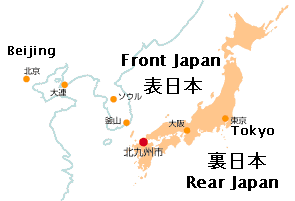| ||||||||||||||||||||

 |
In ancient times, Japan was a colony of Korea.
Huh? Was it? Oh, no! Never! If you are a Japanese, this is probably your reaction. The history book tells us that Emperor Tenchi sent the Japanese troops to the peninsula to fight Silla with Paekche. You as a Japanese might say, “If Japan had been a colony of Paekche or Kaya, Emperor Tench wouldn’t have sent the Japanese army, instead, he must have teamed up with Silla, and together fought Paekche for independence.”
To tell you the truth, one of my Korean acquaintance once told me exactly the same thing. I was infuriated deep inside, though I dared not say the above insult to this Korean man. But I got the same feeling and wanted to swear at him. This Korean chap said, “You know, historically speaking, Korea was highly civilized in ancient times. The level of civilization was much higher than that of Japan at the time. Naturally, the armed forces were mightier than those of Japan. So, how could you possibly say, Korea was a colony of Japan. The truth of fact is, Japan was a colony of Korea. This is quite natural, isn’t it? Because only better civilized countries can subjugate less-civilized and barbaristic lands such as Japan in ancient times.” He even told me, “Most Koreans know about this, and this is rather common sense. Korea defeated Japan in the long past, and it became a Korean colony.”
Even now, many Koreans believe that Yi Sun-shin made the steel boats for the first time in the world history. In his birthplace, the people built a stone monument for the prominent admiral, and consider him to be a guardian angel for the country of the Koreans. Some people even regard his birthplace as a sacred precinct. When the Korean guy told me the above line, I was much younger and somewhat hot-tempered. It has been quite a while since that day. I can now think of the whole matter rather calmly. In any case, the above a-colony-or-not-a-colony dispute has something to do with the racial matters. When you look back in history, you will know for sure that there have been a myriad of racial conflicts and problems over seemingly trifle matters, though such matters seem quite important to the parties concerned. This kind of dispute really fires your national consciousness, raises your racial spirit, and builds up your nationalism. Actually, I’m not a devoted nationalist or a patriot—let alone a kamikaze fanatic. Nonetheless, it did fire a bit of racial spirit indise me.
Soon afterward, the ultra-radical student group—the Japanese Red Army—spread overseas and started to cause havoc.
As Japan took a downward course, I wanted to see what were going on outside Japan. Naturally, I went to the United States as I had seen so much through TV and movies, and walked around and saw many things with my own eyes. For some reason, however, I didn’t fall in with America. Instead, I came to Canada and started to live as a landed immigrant. In the meantime, in Japan, Prime Minister Tanaka Kakuei got involved in the Lougheed scandal. And yet some years later, the so-called “economic bubble” burst open. Since then, the once-flourished Japanese economy went downward and still remains in doldrums. Japan appears lousy—not definitely rosy. I’ve now lived in Canada for two decades. Yet—this is extremely important!—when I see the Japanese flag raised in the sky at the Olympic game, I feel exceedingly good about it. Why? Well, naturally, I was born and brought up in Japan. The blood of the past Japanese flows in my veins. And I am a Japanese in the first place. So, this is the main reason why I felt insulted when the Korean guy told me that Japan was once a colony of Korea. As I said earlier, I’m not a kamikaze fanatic. And I believe that I’m not a racist, and consider myself to be a cosmopolitan. Mind you, I have a lot of good Korean friends. Yet, all the same, I felt insulted when I heard the words. When you look back in history, you can easily find out that many wars, battles, conflicts and genocides have taken place between races. And I can see why. Probably, those miserable events might have happened when some of them heard the insulting line such as: “Japan was once a Korean colony." When I lived in Toronto, the Korean chap just said those words, and I felt somewhat insulted. To come to think of it, however, it indeed makes sense to me now. The word “colony” is not appropriate, but as he said, Korea was more civilized than Japan in ancient times. And in fact, many Korean refugees escaped to Japan with their heighly cultivated knowledge and advanced technology. Some of naturalized Koreans took high positions at the government as administrators and engineers.
And nobody has so far come up with a definite solution to the dispute. I feel, therefore, we might as well change points of view so that we could find some answers from the unexpected corner of the ancient history. This is how I looked into the ancient history and took a second look at the well-established historical facts from the point of view such as descrived above: Japan was once a colony of Korea. I know, this view might irritate some scholars and nationalistic students of Japanese history. To others, however, this view may give an insight as well as inspiration to the otherwise monotonous study of ancient history. In any case, if you have some time to spare, please read one or two of the following problematic—yet intriguing—articles.
| |||||||||||||||||||
| ||||||||||||||||||||




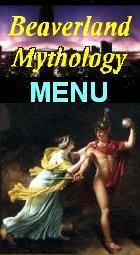



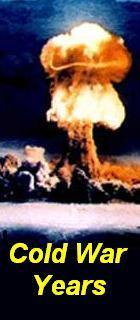






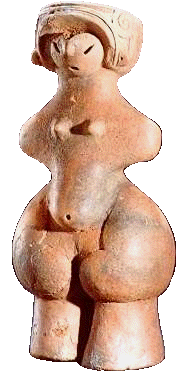
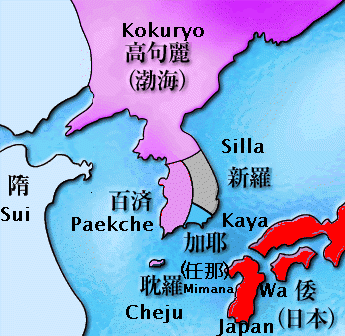
 Besides, Korea once belonged to Japan as its colony before and
during the second World War. You cannot deny this fact.
Therefore, if I really insist that
Japan was once a Korean colony, some Japanese nationalistic
zealots would kill me.
At least, they would shout at me, “You, sonovabitch!
Go to hell or fxxk the shit out of you!”
Besides, Korea once belonged to Japan as its colony before and
during the second World War. You cannot deny this fact.
Therefore, if I really insist that
Japan was once a Korean colony, some Japanese nationalistic
zealots would kill me.
At least, they would shout at me, “You, sonovabitch!
Go to hell or fxxk the shit out of you!”
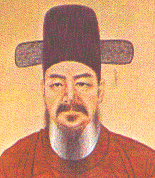 Indeed, the Korean navy was once quite strong. When Toyotomi
Hideyoshi, a famous Japanese overlord in the 16th century, tried
to conquer Korea and to subjugate the land. He sent the large
expeditionary forces twice. In Korea, however,
Yi Sun-shin, a competent admiral, defeated the Japanese,
maneuvering his famous iron-clad warships—the so-called
“tortoise shell boats”.
Indeed, the Korean navy was once quite strong. When Toyotomi
Hideyoshi, a famous Japanese overlord in the 16th century, tried
to conquer Korea and to subjugate the land. He sent the large
expeditionary forces twice. In Korea, however,
Yi Sun-shin, a competent admiral, defeated the Japanese,
maneuvering his famous iron-clad warships—the so-called
“tortoise shell boats”.
 I have been living in Canada for more than 20 years now.
When I lived in Japan in my late teens and early twenties, I was
rather against the Japanese authorities. The time was
late sixties. All over the world, the youth revolt went rampant.
Although I was not an enthusiastic activist, I had observed
the radical group occupying the Yasuda auditorium at
Tokyo University, which is a national university and the symbol
of the authorities. The riot squad, for the first time,
entered the campus and removed the activists.
I have been living in Canada for more than 20 years now.
When I lived in Japan in my late teens and early twenties, I was
rather against the Japanese authorities. The time was
late sixties. All over the world, the youth revolt went rampant.
Although I was not an enthusiastic activist, I had observed
the radical group occupying the Yasuda auditorium at
Tokyo University, which is a national university and the symbol
of the authorities. The riot squad, for the first time,
entered the campus and removed the activists.
 Something went wrong with the Japanese politics, maybe
Japan itself for that matter, and I felt it. Many of my
generation have the critical eye toward the Japanese politics.
With the postwar reaction, the Japanese education became
liberated, with the strong American influence. My generation
were literally brought up with the American
movies, music, TV programs, and anything American. My
favorites were “Father Knows Best”, “Route 66”,
“Gun Smoke”,
Everything American seemed to flourish all around me in Japan.
Something went wrong with the Japanese politics, maybe
Japan itself for that matter, and I felt it. Many of my
generation have the critical eye toward the Japanese politics.
With the postwar reaction, the Japanese education became
liberated, with the strong American influence. My generation
were literally brought up with the American
movies, music, TV programs, and anything American. My
favorites were “Father Knows Best”, “Route 66”,
“Gun Smoke”,
Everything American seemed to flourish all around me in Japan.
 As a matter of fact, his words game me an opportunity to re-think about the ancient
Japanese history. In late 1960s and early 1970s, the so-called
“Yamataikoku boom” grabbed the Japasese minds. Since then, many people
have jumped onto the historical bandwagon and disputed over
the origin and the place of Yamataikoku.
As a matter of fact, his words game me an opportunity to re-think about the ancient
Japanese history. In late 1960s and early 1970s, the so-called
“Yamataikoku boom” grabbed the Japasese minds. Since then, many people
have jumped onto the historical bandwagon and disputed over
the origin and the place of Yamataikoku.
